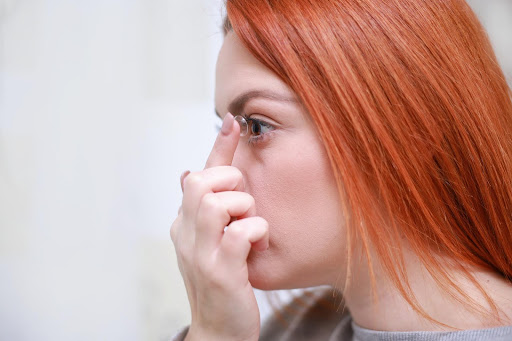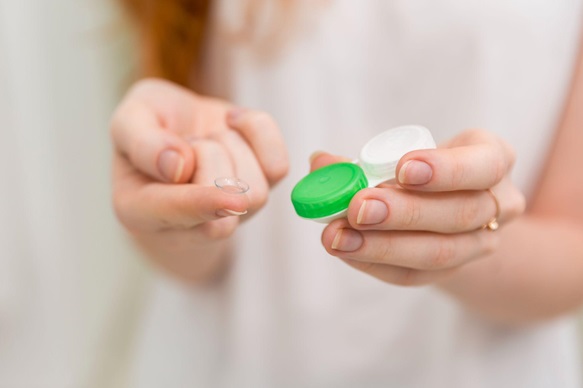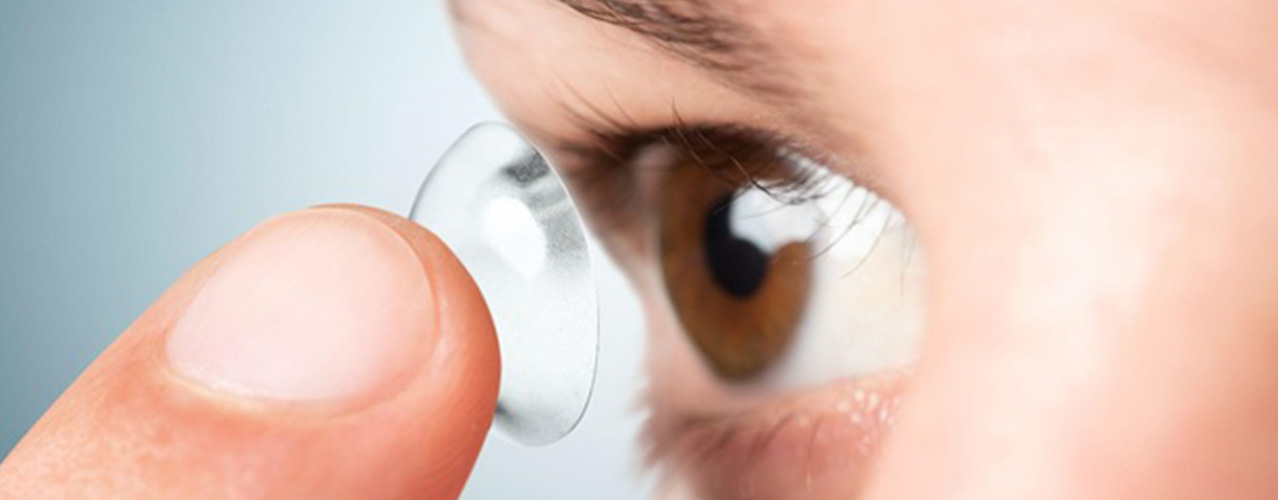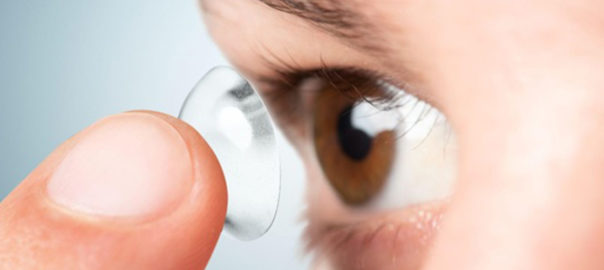The 3 C’s of caring for your lenses and Your guide to using soft contact lenses safely & correctly
Contact lenses are a popular choice in all age groups due to their flexibility, comfort and versatility. But most people are unaware about how to care or store their lenses properly!
Note: This information isn’t for lenses meant for stopping progression of myopia or hard contact lenses. This blog is not medical advise. Read disclaimer.
The 3 C’s of contact lens care:
- Clean hands: Wash your hands with soap and water- and dry your hands with a clean cloth – before wearing or removing your lenses.
- Clean lens: Discard lenses which are expired, dry or discolored. Also don’t wear lenses more than the number of times mentioned on the box. Use only sterile lens solution to store your lenses & clean your storage case.
- Clean eyes: Don’t sleep with lenses and makeup on. If you get redness or irritation or discharge from the eyes, don’t wear the lenses. Come show us asap. There could be an infection or an allergy, which may get worse with lenses.
Do’s & Don’ts of contact lens use:
Do
- Do wash your hands before wearing or removing lenses.
- Do check expiry date of lenses and lens solution.
- Do check lenses for damage before wearing.
- Do use only sterile lens solution for cleaning & storing lenses.
- Do clean lens case thoroughly with every use.
- Do change lens storage case & lens solution frequently – as often as recommended.
- Do consult an eye specialist before starting to wear contact lenses. They come in different sizes, types and thickness and need to be fit properly to ensure comfortable & clear vision. Often people just visit an optical shop and buy lenses with the opticians advise in India. It is better to ensure you have no pre-existing corneal problems which may worsen with contact lens wear and cause damage to your vision.
- Do carry backup glasses or an extra pair of contact lenses in case something happens to the contacts you are wearing.
Don’t
- Don’t use old, dry discolored, damaged or expired lenses.
- Don’t use water or home-made lens solution or DIY lens solution for cleaning or storing lenses.
- Don’t wear lenses and sleep.
- Don’t wear lenses for very long periods of time unless approved by a doctor ( these are special lenses).
- Don’t wear lenses if you have redness, irritation or discharge etc from your eyes.
- Don’t wear lenses if your doctor has recommended that you avoid them.
- Don’t swim or shower while wearing contact lenses.
- Don’t share lenses with anyone else!
Tips for people who are just starting to wear lenses
Some new contact lens users may find it irritating and time consuming in the beginning to wear lenses. Be gentle and patient, these are your eyes. If they water too much, take a break. If the lens develops a scratch from repeated attempts to wear, please discard this lens. And if your eye hurts or waters excessively with the lens inside, please take it out. You may have scratches your cornea and need to go show an eye doctor around you if the redness and pain doesn’t subside soon.
Remember to consult an eye doctor before your start wearing lenses. This is to
– Get the best fit and type of lens for your eye
–Ensure that there is no undetected problem with your eyes which may get worse with lenses.
Remember to follow the Do’s and Don’ts of lenses- especially on cleanliness & storage of lenses. Many times we have seen horrid eye infections- which can scar the cornea and ruin eyesight- just because someone was too tired or complacent- and didn’t wash their hands or use lens solution- and thought nothing would happen just once.
Step-by-step Instruction for wearing Contact Lenses:

- Wash your hands thoroughly with soap & water and then drub with a grown cloth.
- Stand near a clean surface when you handle contact lenses.
- Always open one side cover of the lens box- left or right. Do this especially if your lens power is different in each eye to avoid mixing up the lenses.
- Carefully and gently pick out the lens and clean it with sterile lens solution in your palm.
- Put the lens on the tip of your index finger and check the lens for any damage. Also, check that the lens is correct-side out.
- Hold your upper lid and/ or lower lid open and look into the mirror. Gently insert the lens.
- Close your eyes gently and Rotate your eyeball slowly with closed eyes in all directions to set the lens properly.
- Look again into the mirror to check the lens position. If the lens is inserted and centered correctly, you should feel comfortable and your vision will be clear.
- If you feel discomfort or have blurry vision, you need to take it out and check the lens for damage. If it’s ok and you don’t feel discomfort with the lens out, you can try wear the lens again.
- Once you have got the 1st lens in, repeat the process for the other eye.
- Empty the old lens solution which was in the container.
Steps to take when taking out your contact lenses:
- Wash your hands thoroughly with soap & water and then drub with a grown cloth.
- Stand near a clean surface when you handle contact lenses.
- Always open one side cover of lens box- left or right. Do this especially if your lens power is different in each eye to avoid mixing up the lenses.
- Clean up the lens storage case with sterile lens solution. Then fill the storage case with lens solution till the level recommended.
- Stand in front of the mirror, pull your lower and upper eyelid with your fingers.
- Carefully slide the contact lens to the white area of the eye and gently pick the lens out with your index finger and thumb to remove it from the eye.
- Clean the lens with sterile lens solution & place it in the correct side of the storage case. The lens should be submerged properly.
- Shut the container well.
- Repeat the process to remove the lens from your other eye.
- If the lens is damaged in any way, please throw it away.
Can I use water to store lenses or drinking water to clean lens case?

NEVER!
It’s a common misconception that clean, drinking water can be used to clean lens containers or to store lenses.
Tap water and Drinking water both contain microorganisms. These get transferred to the eye from the lens- and can cause severe damage to eyesight.
If you know someone who’s done this and not had a problem, please Remember they have had a lucky escape!
If you don’t have the sterile lens solution, It is better to throw away the lenses. This is better than the risk of losing your eyesight in attempts to save money by storing it in water.
How do I clean my lens container?
Lens containers should be cleaned and preferably dried after every use. This means every time you wear your lenses, you must clean the container too.
- Use sterile multipurpose lens solution. Some companies sell special lens container cleaning solution and you must follow instructions given with the solution to ensure you neutralise the chemicals before storing your lenses.
- Throw away the old lens solution.
- Clean and dry your hands with a lint-free cloth.
- Fill new multipurpose lens solution and scrub the containers insides with your finger.
- Flush with fresh lens solution and then discard to remove any debris.
- Clean the cap in a similar fashion.
- Air dry in a relatively clean, dust- free environment or invert over a clean sterile cloth or tissue to dry. Allow to fully dry before use.
- Discard container every few months even if it appears spotless. This is because containers can develop biofilms- which are invisible to the naked eye- but which allow bacteria to grow rapidly.
- You cannot use boiled water either to clean the lens case.
- You cannot use use surface cleaner, hand sanitiser, alcohol to disinfect lens container.
Whatever your lifestyle and preferences, your eye doctor can help you find the right contact lenses or eye care solutions for you. If you find contact lenses a problem but still want to correct your eyesight without glasses, LASIK or refractive eye surgery is another option. Remember to always consult our eye specialist with questions about the health of your eyes and vision.
Disclaimer: This information is not intended to constitute or be a substitute for professional medical advice, diagnosis or treatment. Always seek the advise of your doctor or other qualified health care provider with any questions you may have regarding your medical condition. Never disregard professional medical advice or delay in seeking it because of something you have heard in a video or read about in a blog or website.








 Call us
Call us Email us
Email us





